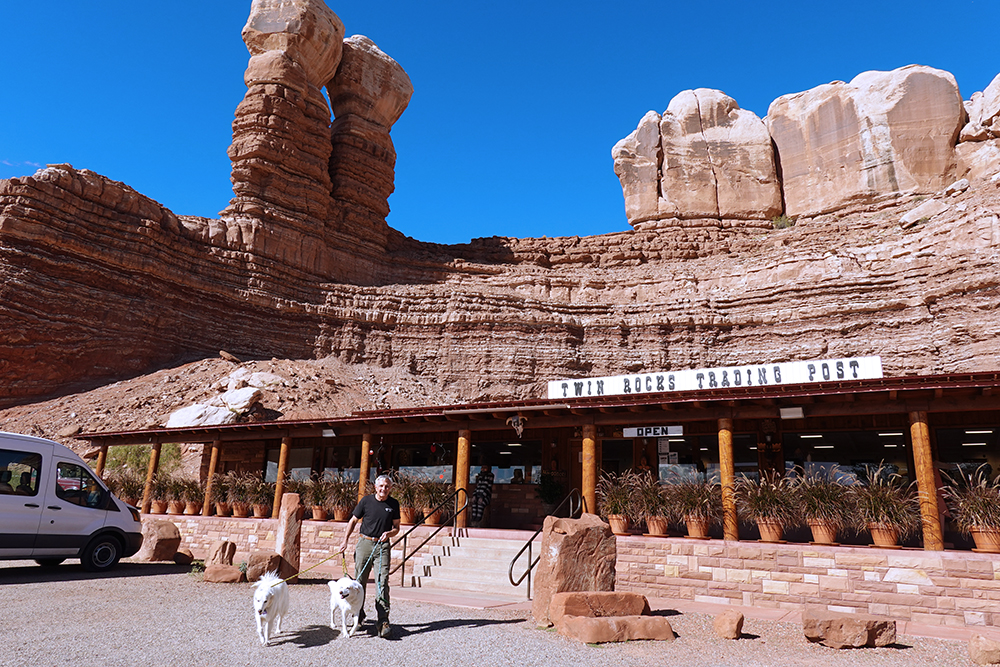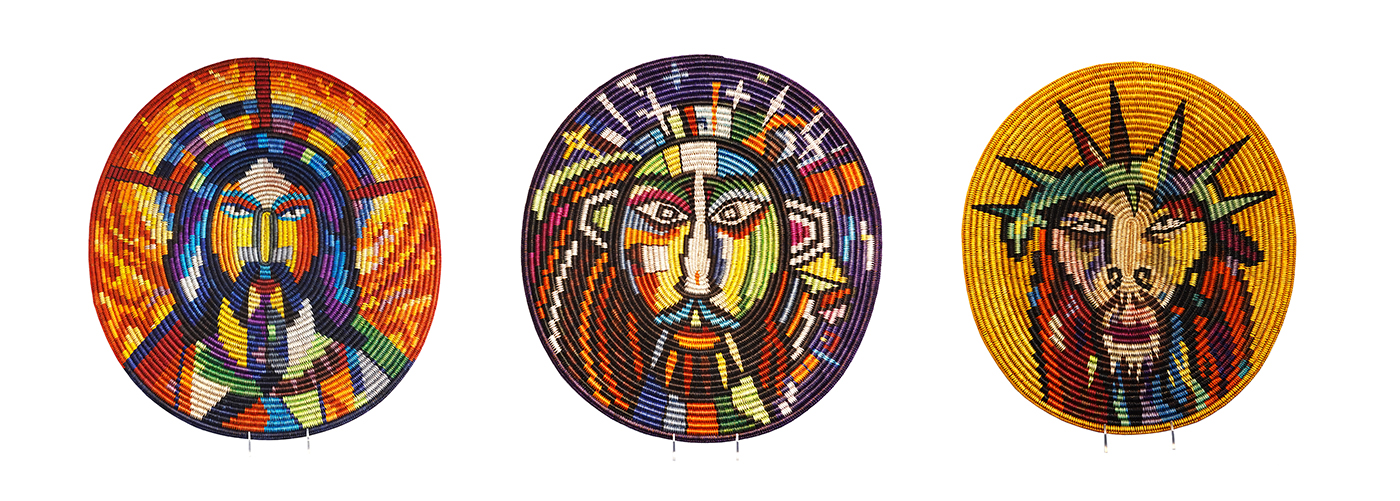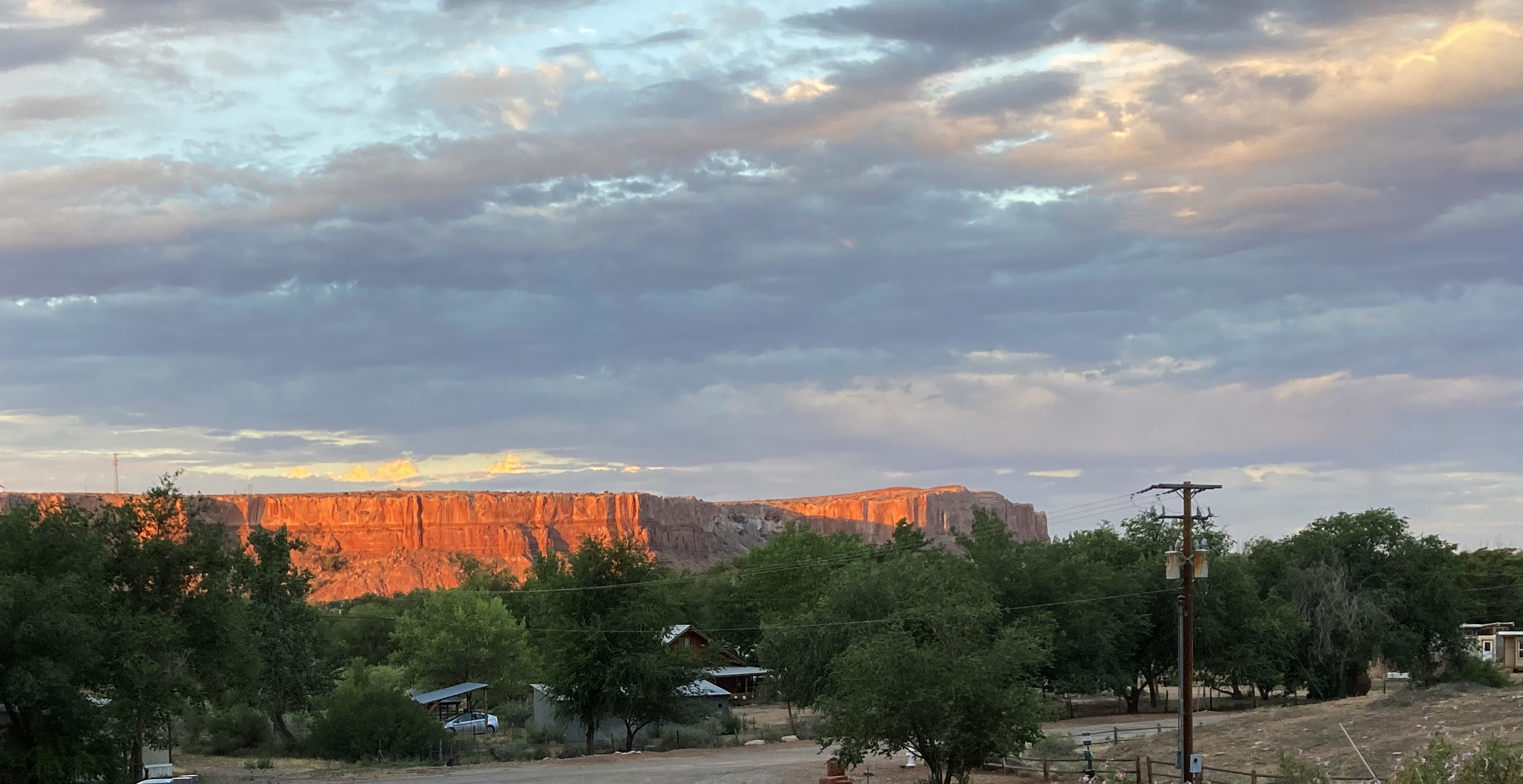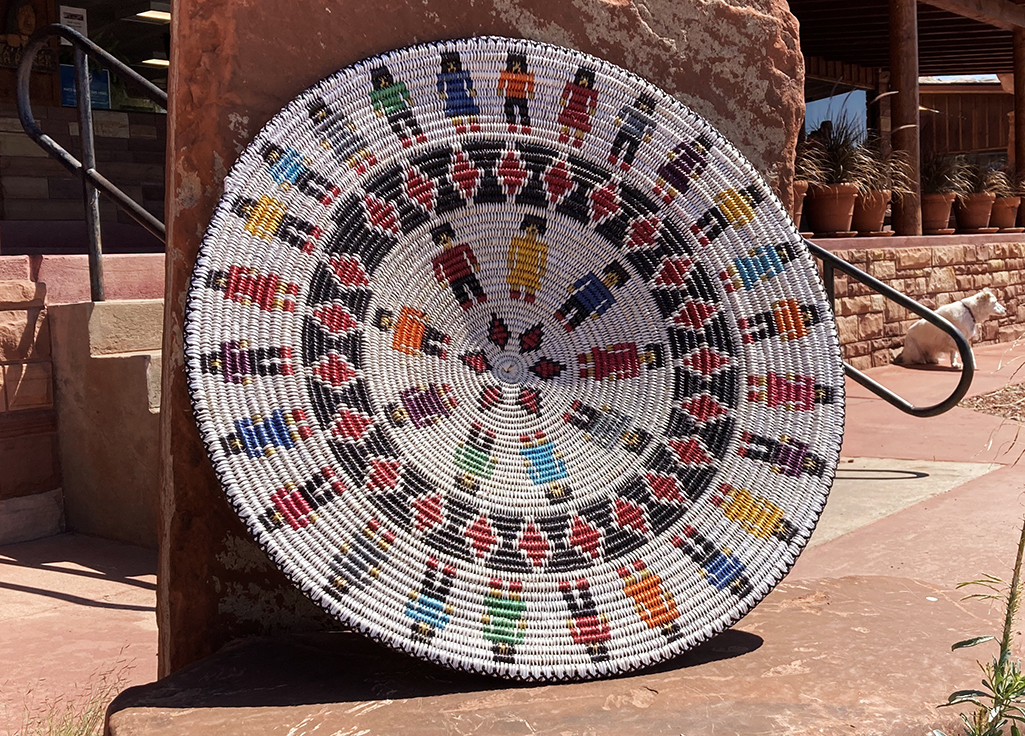THE MAN WITH NO NAME

The other day Priscilla had had enough. “Aaugh,” she muttered loudly, sounding a lot like Charlie Brown. I half expected her to follow up with, “Rats!” “Whaaaat?” I inquired from the safety of my office. It’s never a good idea to get sideways with Priscilla, so I remained seated and didn’t venture out to discover the source of her frustration. “There is white hair everywhere,” she continued. “That’s because we’re old,” I said, somewhat defensively. “Not you and me, Pearl and Opal.” “Oh yeah, they’re old too,” I said.
Beginning to worry they had offended Priscilla, Pearl retreated to her doggy bed in the rug room and Opal hid under my desk. Even they know not to cross Priscilla. It’s that time of year, and Pearl and Opal, the darlings of the trading post, are shedding like . . ., well, there’s no appropriate metaphor for the fur they molt when winter becomes spring. It’s like a blizzard, with “snowballs” everywhere. There is hair on the floor, hair in the showcases, hair clinging to the rugs, hair in our morning coffee, and even hair in the large jar of chunky peanut butter we keep in Priscilla’s office. It’s no surprise Priscilla was annoyed.
Pearl and Opal have become mainstays of the post, with people coming from miles-and-miles to visit them. Virtually every day customers arrive, scan the showroom, and ask, “Where are the friendly shop dogs?” Consequently, despite Priscilla’s irritation, there is nothing to be done. Six days a week Pearl and Opal come to work, and six days a week they are the stars of the shop, hair and all.
Last week Pearl, Opal, and I were walking home from Twin Rocks when Curtis, one of the Bluff Fort service missionaries, stopped us for a little conversation. “Hey, how do you say, ‘White man with two white dogs,’ in Navajo?” he asked. “Bilagaana, ‘ee naaki leechaatsa’ii ligaii,” I posited, thinking I may have gotten fairly close. “Then that should be your Navajo name,” Curtis concluded.
As we continued our walk home, I thought about old-time traders who had been given descriptive names by their Navajo customers. To list just a few, Lorenzo Hubbell was “Naakaii Saani” (“Old Mexican”), Burt Dustin was known as “Ashkii Biwwoi,” (“Man With Big Teeth”), Seth Tanner was “Hastiin Shush,” (“Big Bear”), and his son was “Shush Yaz” (“Little Bear”).
When we got to the trading post the following morning, I asked Priscilla if I had a Navajo name. “No!” she said, still agitated about white hair. Although I already knew the answer, I was still disappointed. “Shouldn’t I have one?” I insisted. “You should worry more about dog hair in your coffee than Navajo names,” Priscilla advised. “Still,” I said, “wouldn’t it be nice to be called Shush Biwwoi (“Bear With Big Teeth”) or even Ashkii Beeso Atin (“Man Without Dollars”)?
Priscilla said having a Navajo name would only bring trouble, that it might cause her clansmen to adopt me as their brother, uncle, father, or grandfather, and that would result in supporting them financially. Not much later Lorraine Black called to see if I could lend her a few bucks to pay rent. “See Hastiin Bi Zhi Atin (‘Man With No Name’),” Priscilla said, “careful what you wish for.”








